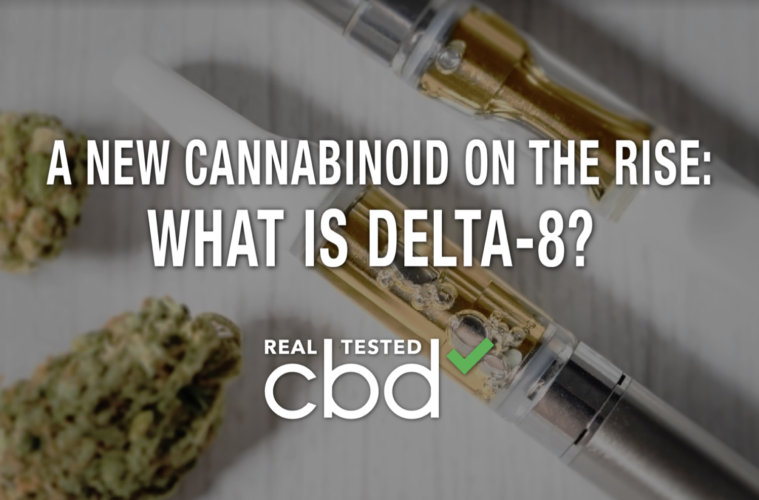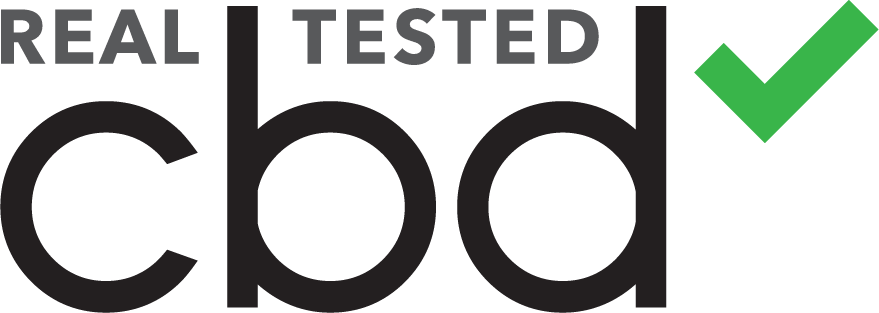This article was originally published on Real Tested CBD. To view the original article, click here.
Over the past decade, cannabis research and reform have both progressed. The cannabis industry has reached a new milestone, with consumers becoming more aware and well-versed with various cannabinoids that can be found in cannabis and hemp plants. From THC to CBD and even to the rarer cannabinoids like CBN, CBG and THCV, consumers are learning more about cannabinoids and how to utilize them for potentially therapeutic benefits. Cannabinoids can help you reduce stress, manage pain, stimulate appetite, and more.
If you consider yourself a cannabinoid connoisseur, you probably know the proper name for THC, the cannabinoid most known for the “high” feeling, is Delta-9 THC or Delta-9-tetrahydrocannabinol. But did you know delta-9 is not a lone form of THC? There is a new cannabinoid gaining traction in the cannabis and hemp industries: Delta-8 THC.
What Is Delta-8 THC?
Delta-8 THC is a minor cannabinoid found in cannabis and hemp plants. Though research surrounding all cannabinoids is relatively new and still emerging, there is less knowledge in the direction of minor cannabinoids compared to the primary ones like (Delta-9) THC or CBD.
Delta-8 THC occurs in all cannabis and hemp plants in very small concentrations, with most of the Delta-8 THC available being produced from hemp plants. Delta-8 THC is a relative of Delta-9 THC, with a similar molecular structure, but with a few notable differences. The two share similar properties, like potentially stimulating appetite or reducing pain, but Delta-8 THC reportedly exhibits a lower psychoactive impact than Delta-9 THC.
From a chemical standpoint, delta-8 THC and delta-9 THC differ due to the location of a double bind in their molecular chain. Delta-8 THC contains the bond on the 8th carbon chain while delta-9 THC has it on the 9th carbon chain. Though this is a small difference in structure, there is a detectable difference in how each effects the body’s endocannabinoid system (ECS). Delta-8 THC can bind to CB1 receptors within the ECS, but less is known about the bonding with CB2 receptors.
Delta-8 THC’s bond with the CB1 receptor is somewhat like that of Delta-9 THC, but due to its difference in molecular structure the interaction is different. The CB1 receptor within the ECS is largely responsible for moderating the psychoactive effects of THC, so the difference in bonding could be the reason for the reported reduction in psychoactive properties. Users of Delta-8 THC have reported similar effects that like of traditional THC, but less amplified. In other words, Delta-8 THC could create a desirable middle ground between CBD and traditional THC. The reduced psychoactive effects of Delta-8 THC could be a bridge to reaping the benefits of Delta-9 THC without the intense “high” so well known to the cannabinoid.
Is Delta-8 THC Legal?
Though the difference in name and cultivation may resemble small details, they do change hoe Delta-8 THC is determined legally. Most Delta-8 products on the market today are sourced from hemp plants. According to the 2018 Farm Bill, hemp cultivated in the United States must have a THC threshold of less than 0.3% Delta-9 THC. This puts the legality of Delta-8 in the same classification as CBD products (for now at least, and ideally forever!). While restrictions may vary state by state, similar to restrictions surrounding Delta-9 THC, currently most Delta-8 preparations are hemp-derived and fall under the legislation of 2018 Farm Bill.
As the popularity of Delta-8 continues rise, so does the debate on Delta-8’s legality on a federal level. For now, technically Delta-8 is a go federally, but again, states have the power to control the use and distribution of Delta-8. Some states have already begun to place restrictions on Delta-8, so be sure to familiarize yourself with local laws before buying hemp or cannabis products. It is also important to always turn to reliable and safe sources for your hemp-based products, to ensure legality and effectiveness.
Turn to Real Tested CBD to take the guess work out of your next hemp purchase. With reviews and independent lab-test results on potency, purity and quality from brands across the industry. Buying from transparent and trustworthy sources is the best way to guarantee your hemp purchase, whether it contains Delta-8 THC of not, is on the right side of the law.
*This article was last updated on 4/4/2021*
Advertising disclosure: We may receive compensation for some of the links in our stories. Thank you for supporting Irvine Weekly and our advertisers.


